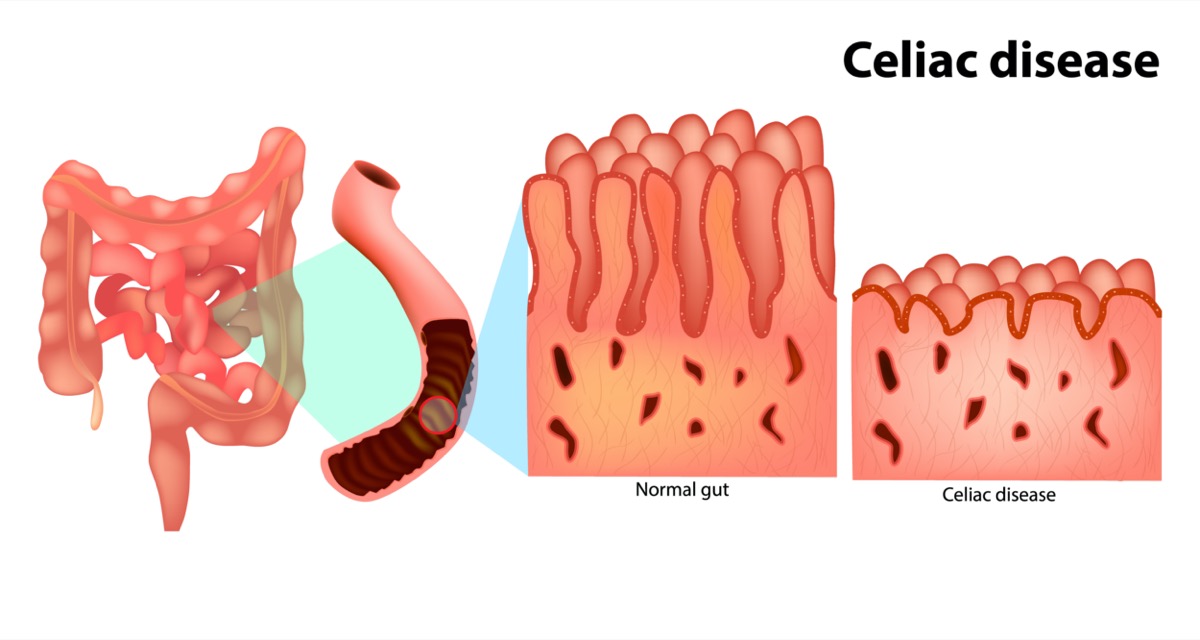Celiac Disease
Only 1 percent of the population is affected by the autoimmune disease known as celiac disease. Like irritable bowel syndrome, research has yet to discover what causes celiac disease, but it is known that when individuals diagnosed with this disease consume a protein called gluten, which is found in rye, barley, or wheat, they cause an adverse reaction. This often leads to symptoms like painful diarrhea, bloating, nausea, fatigue, gas, weight loss, and constipation.

The best way for those with the autoimmune disease to avoid flare ups is to go on a gluten-freed diet. Patients with celiac disease are urged to change their diet, because the long-standing effects of the disease are too troubling. Repeated flare ups can lead to a damaged lining around the intestine, anemia, and difficulty absorbing essential vitamins and nutrients. Fortunately, once someone with the disease removes all gluten from their diet, they should see their symptoms subside within days, including the diarrhea.
More from Things Health
-
The Common Cold
Common cold, also known simply as a cold, is a viral infectious disease of the upper respiratory tract that primarily affects the nose. The throat,…
-
10 Common Causes of Gallstones
Gallstones are made up of cholesterol that develop in the gallbladder and are usually harmless. However, in the event that they grow larger and start…
-
The Most Common Causes of Atrial Fibrillation
Atrial fibrillation, Afib, is an abnormal heart rhythm, also known as an arrhythmia. Atrial fibrillation is described as rapid and irregular beating of the atrium,…
-
Pooping Blood? Here are Some Common Causes of Blood in Stool
Blood in stool is related to many factors. It can be nothing to worry about, or it can indicate a serious medical condition. The amount…
-
Causes Of Itchy Eyes
Did you know that insufficient humidity inside the body may cause dry itchy eyes? If you're somebody who does not drink enough fluids each day…






